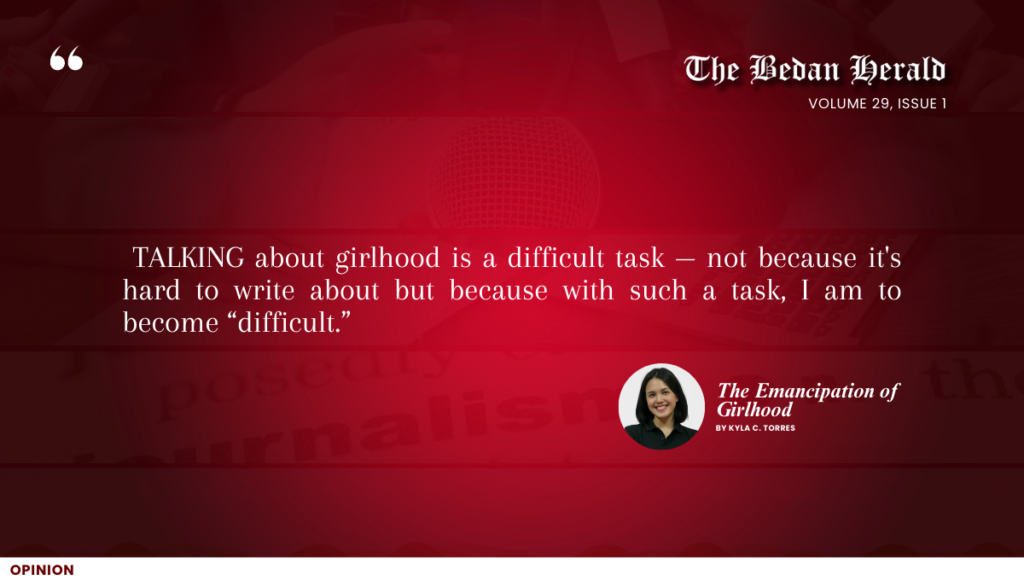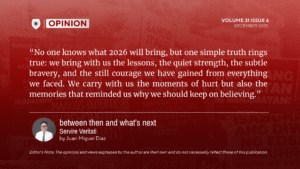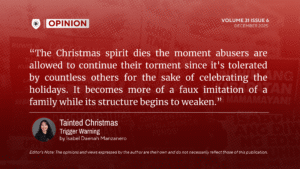By Kyla Jai Torres | August 26, 2023
The Emancipation of Girlhood
TALKING about girlhood is a difficult task — not because it's hard to write about but because with such a task, I am to become “difficult.” Women are prejudiced to live in a constant dichotomy of being remarkable but with subtlety and the burden of constant undermining. With every stereotype that binds the likes of young women, girliness, and femininity to be “silly and superficial,” it is a task for female writers to unravel.
On the web, have you ever seen the addition of the word “female” to a facet of media? Have you ever encountered the likes of the “female gaze,” “female rage,” or “written by a woman?” Women create niches like these because of the lack of nuanced female characters, and often it is so obvious — aren’t we all tired of the “Strong Female Lead '' that has no drop of emotion? To be relevant, she has to have it all or else be a love interest.
Today, bit by bit, women are slowly changing this narrative and bringing it to mainstream media. Creatives such as Sofia Coppola, Phoebe Waller-Bridge, and Greta Gerwig are some of the few who tackle the complexity of being a woman as well as the wonder and horror of girlhood. It is through their work, that we are exposed to the raw and nitty-gritty details of growing up as a girl such as the feeling of confiding in sisterhood and conditioned people-pleasing.
Gerwig’s blockbuster hit “Barbie” advertised itself with the sentiment that "If you love Barbie. This movie is for you. If you hate Barbie. This movie is for you." With the infamous doll’s image as a “perfect” girl, she purports an image of a successful and capable woman but also contributes to the societal pressure of an unattainable ideal. The movie does not shy away from this idea, if not embraces it. Without giving too much away, the movie speaks volumes on the contrasting expectations of women and sheds light on being ordinary and embracing the unknown — just as most of us are probably feeling.
Women need to write about women because no one can tell it better. It's creating characters that we can look up to but more importantly, relate to. We need to tell the stories that act as reminders, warnings, and comfort to women, especially the youth. This type of media isn’t a shield or an attack on perpetrators of misogyny, it is the divulgence that we need.
Volume 29 | Issue 1




